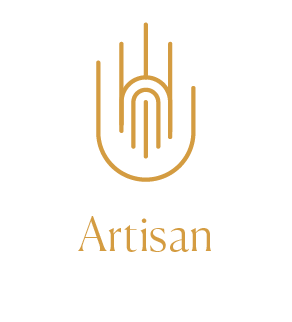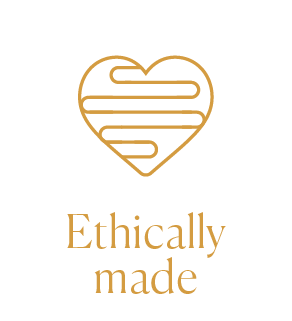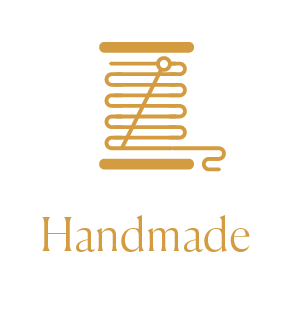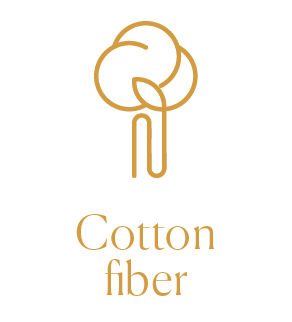Our Story
What is Equal Hands?
Equal Hands is a premier online destination for discovering the best ethical handmade fashion from around the world.
What brands do you carry?
We scour the world to bring you the most coveted designers who are strongly committed to our 3 pillars of sustainability. All of the products we carry are crafted with a firm commitment to sustainability. Each designer and maker are carefully hand curated by our founding team.
What are we doing to be sustainable?
We founded the company base of our 3 pillars of sustainability (people, planet and progress), with a strong commitment to ensure all of our products have at least five or more of the criteria below.

Made by artisans using age-old techniques that are rooted in regionally specific traditions. Created by hand, demonstrating the unique skill of the artisan and supporting one-of-a-kind pieces in a world of homogenized mass production.

Dyes or colorants derived from plants, invertebrates, or minerals. The majority of natural dyes are vegetable dyes from plant sources—roots, berries, bark, leaves, and wood—and other biological sources such as fungi.

Ethical and transparent production that considers both people (work conditions, potential for advancement, non-discrimination) and the planet (ecology, carbon footprint, natural materials).

Natural fibre, hairlike material directly obtained from an animal, vegetable, or mineral source and convertible into nonwoven fabrics or woven cloth.

A resource that can be continuously replenished, or there is an unlimited amount of it that can be captured or harnessed and useful towards providing energy without there being a decrease in supply.

Trade between companies in developed countries and producers in developing countries in which fair prices are paid to the producers.

Items that have been produced and exist, having a continued life as an upcycled item or the raw material for a “new'' item made from the existing material. We are happy to upcycle gently used items to be made into a newly style garment.

Made with the commitment of donating proceeds back to charitable organizations.

Constructed by hand, not by machine, and typically therefore of superior quality.

The art of producing woven textiles by hand using any of the many weaving techniques in the world. Weaving produces textiles by interlocking two yarns, typically in a perpendicular relationship.

The conversion of “waste” materials into reusable materials.

The reuse of discarded objects or material in such a way as to create a product of higher quality or value than the original.

Adapting an item with an originally intended (perhaps now obsolete) use for use in a different (non-obsolete) purpose.

Means that nothing artificial or synthetic (including all color additives regardless of source) has been included in, or has been added to, a product that would not normally be expected to be in that product.

From the cotton plant, the fiber is most often spun into yarn or thread and used to make a soft, breathable textile.

Used to describe a product or service that is the only one of its type.

Produced or involving production from a natural material without the use of chemical fertilizers, pesticides, or other artificial agents.

Denoting a produced item of high quality, especially something from the past, that may or may not be a used item.

Revolves around conservation, permeability and retention, all with the aim of conserving water and minimizing or eliminating the use of plastics that may wind up in our oceans.
Plastic Free:
Products free of plastics or plastic derivatives in ingredients and constitution.

Not using or containing any animal materials in products.

Manufactured or developed by methods that do not involve experimentation on animals.

Packaging materials which are completely recyclable, compostable or biodegradable.

Capable of being decomposed by bacteria or other living organisms.

Products without any parabens. Parabens are believed to disrupt hormone function by mimicking oestrogen. Too much oestrogen can trigger an increase in breast cell division and growth of tumours, which is why paraben use has been linked to breast cancer and reproductive issues.
SLS & SLES Free:
Products without any of the surfactants - Sodium Lauryl Sulfate and Sodium Laureth Sulfate. Used for the manufacture of transparent soap bars.

Products free of a long list of chemicals, including the 'Dirty Dozen' cosmetic chemicals to avoid.
Every purchase you make at Equal Hands we support a cause that matters. You get to choose the cause we make the donation, you can track live to see how impactful your purchase is via our partner I=EqualChange platform. Join our tribe and help us:
Prevent Human Trafficking : Human trafficking threatens children’s lives in Nepal every day. Women and children are often sold, especially in remote areas.
Help Educate a Girl : In the male-dominated slums of Calcutta, girls come second in every way. They are rarely sent to school, and often end up forced into child marriages, child labor or sex trafficking.
Save a Mother’s Life : In Eastern Burma, 1 in 12 women are at risk of dying during pregnancy or when giving birth. 1 in 5 children will also die before the age of five. These are some of the highest rates in the world.
